Covid infections and hospital cases still rising in Wales
- Published
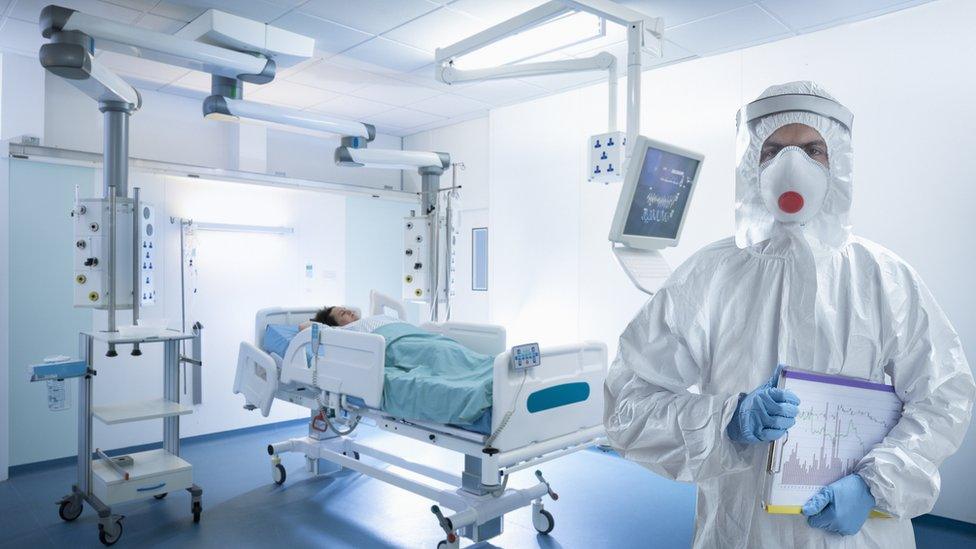
Hospitals remain very busy - and NHS Wales bed occupancy has hit record levels
Covid infections are continuing to increase in Wales, according to the Office for National Statistics (ONS).
A total of 74,900 people were estimated to have the virus - the highest weekly figure since the end of July.
That's one in 40 of the population - or 2.47%. This is the fourth week running the estimate has increased.
Meanwhile, numbers in hospital testing positive for Covid continue to rise, although 95% of those cases are being primarily treated for something else.
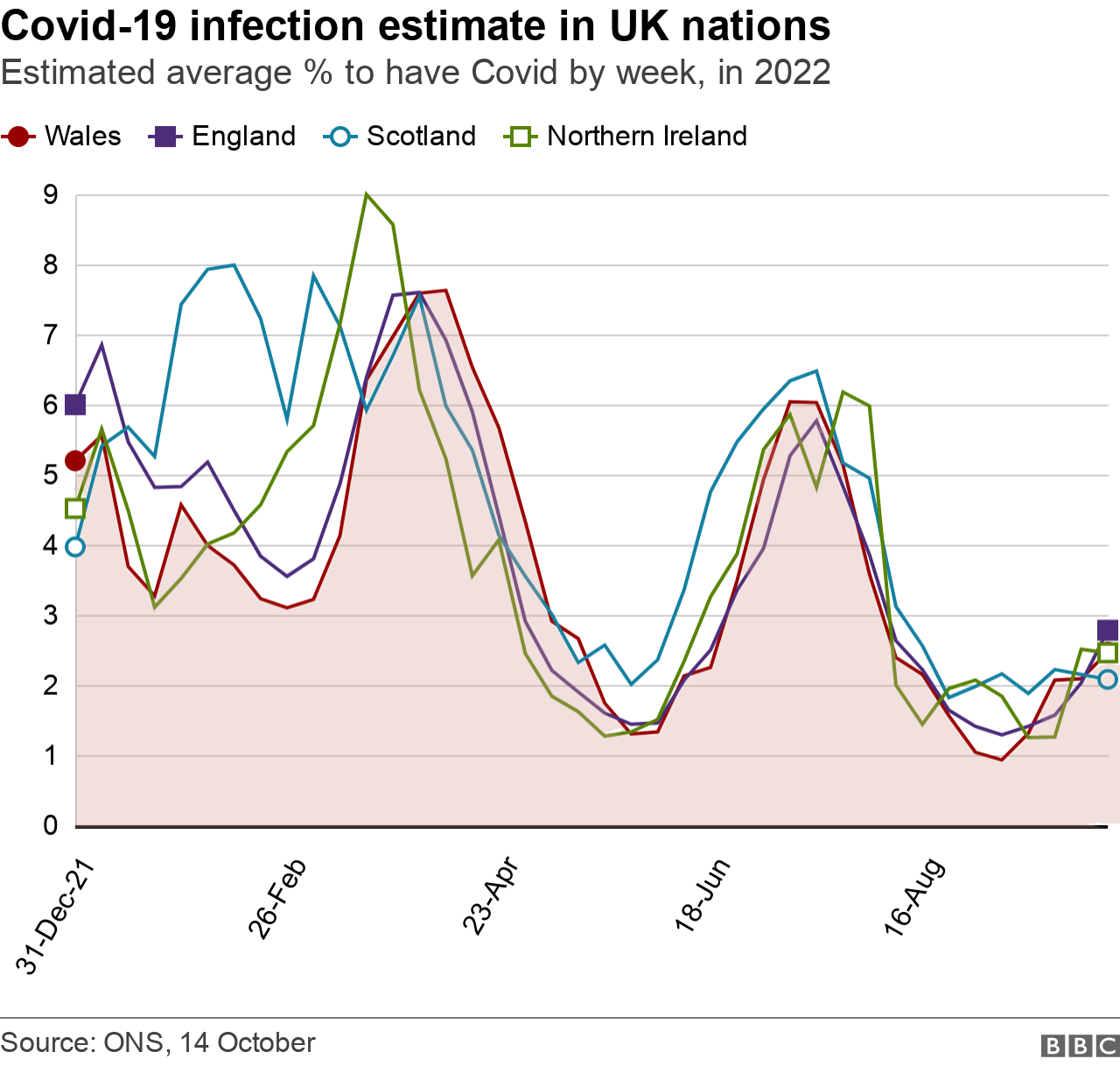
The latest daily estimates show rates of infection are higher in older people in Wales - rising to 3.47% of the over 85s.
Infection rates are also estimated to be one in 40 among people in Northern Ireland, slightly less in Scotland (one in 50), where the trend is uncertain, and higher in England - one in 45. Infections were also rising in all English regions apart from the north east.
For more than two years, the ONS has been analysing swab samples every week from thousands of people in Wales. After the end of mass PCR testing in April it is the main tool for estimating levels of infection out there.
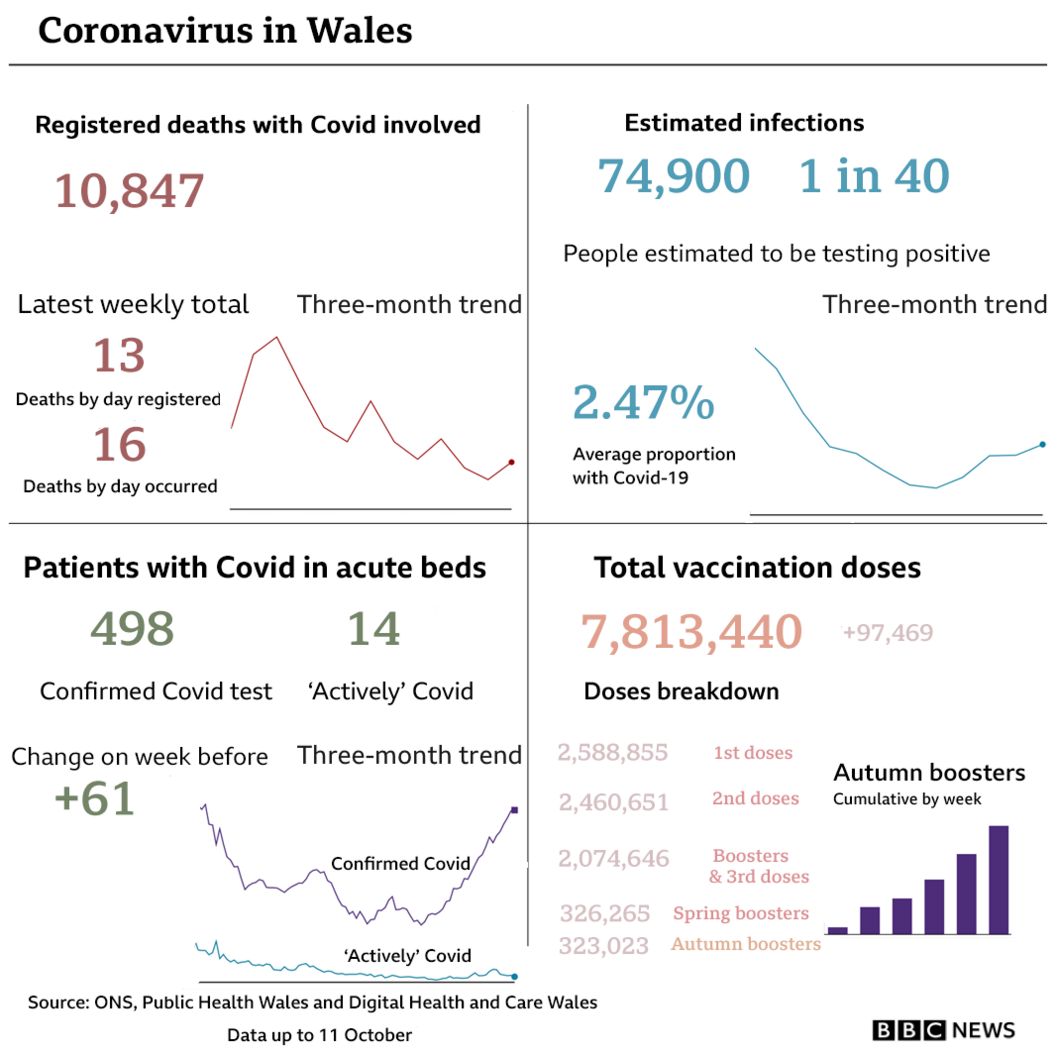
Rising infections are also being seen in hospitals, although numbers seriously ill with the virus remain very low.
The number of hospital patients testing positive for Covid is at the highest levels in more than two months, nearly doubling in a month.
But still very few are being "primarily" treated for the virus.
The number of patients testing positive for Covid in hospital beds in Wales averaged 533 a day in the week to 11 October - up 29% on the same time last week.

The vast majority continue to be "incidental" Covid patients, who happen to test positive in hospital.
Only 14 (3%) of confirmed Covid patients in acute beds on 11 October were being primarily treated for the virus, with 484 patients in hospital being treated for other conditions. The average for the last week has seen 95% of patients with Covid being treated for something else.
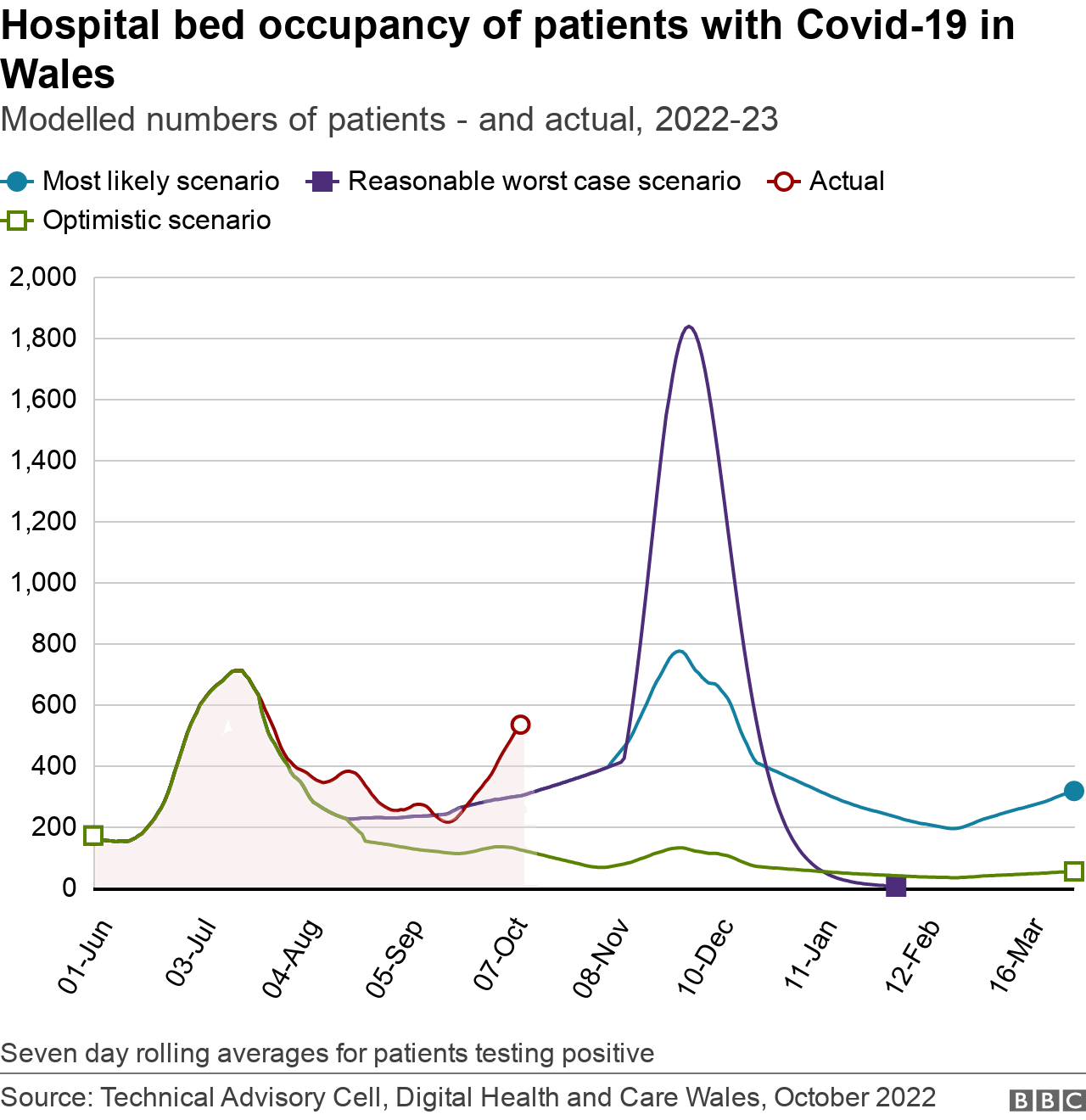
Modelling for Covid this winter - published this week - sees the number of cases this winter peaking at more than 1,800 patients in hospital beds with the virus in a "worst case scenario" in December.
Currently, the actual curve for patients with Covid positive tests is well ahead of all the modelled scenarios - and has been above the predicted levels since late September.
Covid infections caught by patients while in hospital is at the highest weekly total since July and they account for more than half of Covid positive patients in hospital.
Hospital-acquired infections stood at 223, nearly all in elderly patients, with 68 in the Betsi Cadwaladr health board.
Both Covid admissions and those with Covid in critical care remain the same as the week before and only six patients were in critical care or on ventilation and being primarily treated for Covid on Tuesday.
However hospitals remain very busy - and NHS Wales bed occupancy has hit record levels
This measures the proportion of available acute beds which are full of patients.
It hit its highest level this week, with 94.8% of acute beds occupied on average in the week ending 11 October.
This beats the previous record set in early August.
It comes days after warnings of a hard winter for hospitals, especially if cases of flu, Covid and other respiratory conditions add to pressures.
The number of autumn booster jabs is starting to increase week on week - and more than a third of over 65s have been reached.
Dr Mary Ramsay, director of public health at the UK Health Security Agency (UKHSA), said: "We're seeing sustained increases in Covid-19 cases and hospitalisation rates, so we continue to urge those eligible for vaccinations to come forward, whether that's a first dose or a booster.
"Vaccines are the best protection against severe disease and hospitalisation this winter and it's never too late to take up your first dose."
Related topics
- Published13 October 2022
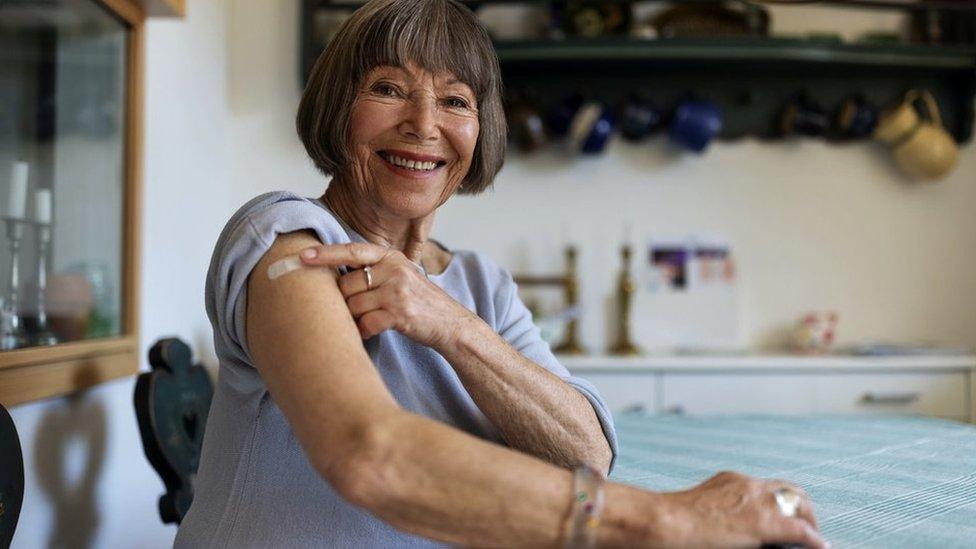
- Published14 October 2022
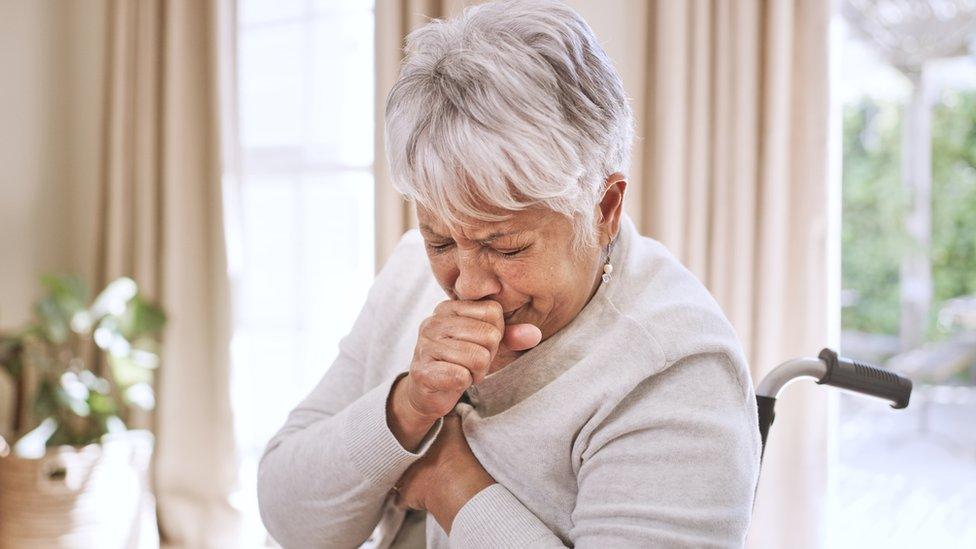
- Published14 October 2022
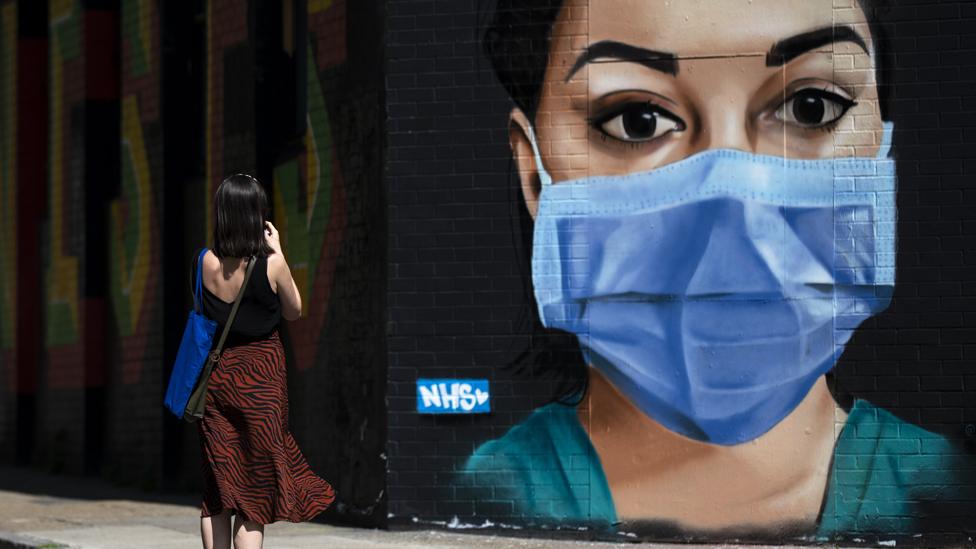
- Published28 May 2024
